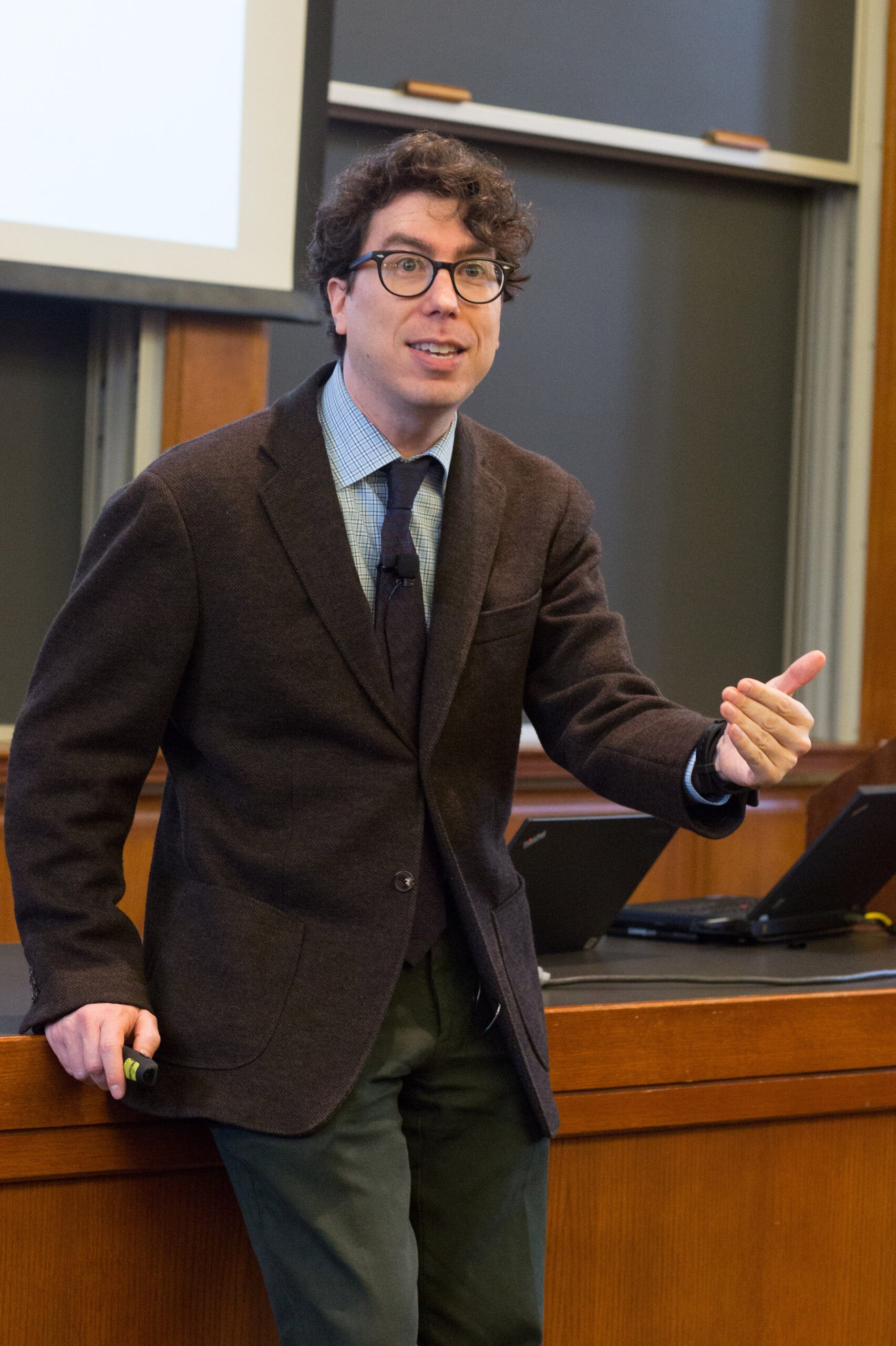Five Harvard Law School professors presented a sampling of their innovative ideas in late May at the 2014 Harvard Law School Thinks Big lecture.
The challenge for the faculty was explaining their big ideas in short talks. “We are known for giving long talks about big ideas,” said Martha Minow, Harvard Law School dean. But a timer on the podium limited the speakers to eight minutes each.
For listeners, it was like riding a tour bus through the landscape of legal innovation at HLS, with glimpses of the future of access to legal scholarship, protection of vulnerable children, trends in international human rights law, digital Islamic law resources, and advances in the laws that govern what we eat.
Jonathan Zittrain, George Bemis Professor of Law, Vice Dean for Library and Information Resources, and Faculty Co-Director of the Berkman Center for Internet and Society, is thinking big about the future of legal scholarship. He said that academia needs to look at ways to facilitate access to high quality legal scholarship and reconsider the entire process that creates, stores, and distributes it. “The key to me is to realize that the scholarship we produce and consume is ideally intrinsically motivated,” he said. It’s preferable that people with that intrinsic motivation, such as librarians and academics, provide access to legal scholarship rather than for-profit companies with extrinsic motivation, Zittrain asserted.
Elizabeth Bartholet, Morris Wasserstein Public Interest Professor of Law and Faculty Director of the Child Advocacy Program, spoke about “finding the child in child welfare.” She cautioned that many current legislative efforts that appear to protect vulnerable children actually protect adults instead. The child welfare system, she said “is unduly oriented to what gets called family preservation. I question if it’s really a family from the child’s point of view if it is incapable of nurturing.”
Tyler Giannini, Clinical Professor of Law and Co-Director of Harvard Law School’s Human Rights Program and International Human Rights Clinic, set out to answer the question: What does it take to move human rights forward? To maintain the progress made in human rights work over the last 60 years, advocates must pay attention to both human rights law and human rights movements, he said. And lawyers must ensure that the human-rights holder is at the center of their work. Human rights work has relied on litigation and documentation of abuses: In the future, Giannini said, it should also include community lawyering to sustain human rights advances. And increasingly, human rights lawyers will incorporate documentary film and social media into their traditional interviewing process, he said. “The big idea is to bring law and movements together, and that’s how you get advancement that’s sustained,” said Giannini.
Intisar Rabb, professor of law and faculty co-director of the HLS Islamic Legal Studies Program, explained her efforts to digitize Islamic legal texts in a searchable online portal called SHARIAsource. She said the creative use of technology can bring the history of Islamic law into contact with new possibilities for legal research and analysis. Open access to Islamic law texts, Rabb envisions, would enable more comparative, empirical and collaborative studies of Islamic law.
The last speaker was Jacob Gersen, Professor of Law and Director of the Food Law Lab at the Petrie-Flom Center for Policy, Biotechnology and Bioethics. His talk, titled “From Court to Table” described how legal rules structure the food we make, produce, buy and eat. In the future, he said, law and technology may dovetail to solve food purity problems.
